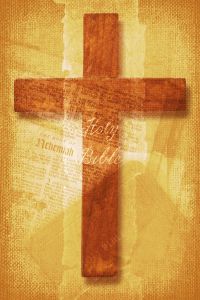 Scripture: Jan.6, Lectionary # 216: I John 4:19-5:4. Psalm 72:1-2.14-15.17.
Scripture: Jan.6, Lectionary # 216: I John 4:19-5:4. Psalm 72:1-2.14-15.17.
Luke 4:14-22
Epiphany helps us to contemplate the transition of Jesus from his early
years to the manifestations in his active ministry. The liturgical
readings are carefully chosen to bring this out and to emphasize the cures,
miracles, and spiritual powers that Jesus of Nazareth possesses as the Son
of God. We still have a shadow remembrance of his days at the home of
Joseph and Mary in Nazareth in today's passage. It mentions he was reared
in Nazareth--a town unknown in the rest of the Bible; only the New
Testament makes mention of it. Today a beautiful basilica dedicated to the
Annunciation is there and it is one of the well known towns now throughout
the world because of Jesus' early years there and even as some say, maybe
his birth!
Jesus has the training from his righteous parents to go to the synagogue on
the Sabbath. This time he is called upon to read the haphtorah or the
reading from the prophet Isaiah. The Torah would be central in the Temple
and the synagogue, the second reading would be called the haphtorah. Luke
innaugurates Jesus mission to the people of Israel by this account of his
being in the synagogue at or near Nazareth. The power of the Holy Spirit
is present both in the manner in which he reads the sacred text and in the
fact that he will carry out what the text says. At the end, while
surveying the assembly, he calmly states, "Today this Scripture is
fulfilled in your hearing." Jesus will go out and do what the prophet
calls for of him-- to bring good news to the poor, to restore sight to the
blind, to set prisoners free.
At each liturgy that we have the joy of participating in we too are called
to set in motion what we learn from the readings. The word of Jesus is
alive and is meant to be kept alive in our words, actions, and thoughts.
The Bible must not remain on a podium but must be internalized in our
hearts and brought to others. We are called to be another Christ (alter
Christus) after the example of Paul and the apostles once they have
experienced the resurrected Christ. At the end of each Mass the celebrant
sends us out on mission for the mass is finished in the liturgical sense,
therefore, we are to go and bring what we have heard and learned to
others. This should be a daily mission whether we have been to mass or not.
In I John the message of love continues in these last chapters. We must
learn how to love each person as a member of the Body of Christ, as a
sister and a brother, whether they are friendly or inimical. "One who has
no love for his brother or sister whom we can see, cannot love God whom he
or she does not see." We too are to be like Jesus who fulfills the
Scriptures for us in the Gospel by showing us what is meant by love of
one's neighbor. The guidance of the Holy Spirit is always there for us if
we pay attention to what the Scriptures are telling us. Amen.
About the Author

Guest
We welcome guest contributors who graciously volunteer their writing for our readers. Please support our guest writers by visiting their sites, purchasing their work, and leaving comments to thank them for sharing their gifts here on CatholicMom.com. To inquire about serving as a guest contributor, contact editor@CatholicMom.com.


.png?width=1806&height=731&name=CatholicMom_hcfm_logo1_pos_871c_2728c%20(002).png)
Comments